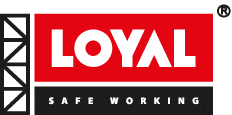No products in the basket.
Blog
Mobile Scaffold Tower Certification
In this blog we look at different types of certificates and which are applicable to mobile scaffold towers to help you choose a safe tower for working at height.
CE Certificate
CE marking (Conformité Européene, or European Conformity marking) is a requirement for many products on sale in the EU, and UK, to show that the manufacturer has checked these products meet EU/UK safety requirements and is an indicator of a product’s compliance with current EU/UK legislation. However, there is no directive that covers CE marking for mobile scaffold towers. Instead, they must comply with EN 1004-1:2020 standard.
Don’t be fooled by scaffold towers with CE marking, they are likely to have been manufactured outside of the UK/EU and the manufacturer is falsely claiming that they meet UK/EU safety requirements. Ask yourself, or, even better, ask the seller, how can their towers have CE marking if there is no directive for it?
Manufacturer Test Certificate
Most manufacturers will, at some stage during product development, test the product themselves to ensure that it meets the safety requirements of the standard that it was manufactured to. They will do this in-house and produce a test report based on their findings and, providing it passes all of the test requirements of that standard, issue themselves a test certificate. Sounds good but be aware that manufacturers could easily alter and produce false test results to make their product seem safer than it actually is, so, unless you have had a long term relationship with a reputable manufacturer and trust their test results or plan on ordering a sample and doing your own tests if you are able to, it is worth taking this with a pinch of salt!
A manufacturer test certificate is only valid for the sample tested at the time so, by definition, doesn’t extend to any other product, even if it exactly the same model in the same production run, than the one tested, and is only valid when with a detailed test report also.
At the end of the day, a manufacturers test certificate does not mean that a product is certified, as this has to be carried out by an independent approval body, only that one, possibly stronger, sample has been tested so be very cautious of companies who claim that it does.
Independent Test Certificate
In addition to their own testing, most manufacturers will also pay a third party testing company to independently test the product to check that it conforms to the specified standard. All being well, providing the product passes all of the test requirements of that standard, the independent testing company will issue a test certificate accompanied by a detailed test report.
A safer assurance than manufacturer testing as the product has been independently tested, but, as there are so many independent testing companies all over the world, the manufacturer is probably going to use the one that is the cheapest (and as we know, cheapest doesn’t always mean best!) or one that they have a good relationship with, maybe is willing to bend or break the rules for them, or will only conduct tests on selected areas of the product standard at the manufacturers request. Given this, it might be worth checking that all areas of the standard have been covered in the test report, if you can find a complete version of the standard online to compare it to.
Again, this type of test certificate is only valid for the sample supplied and tested at the time along with the detailed test report and does not mean, by any stretch of the imagine or a supplier claiming that it does, that a product is certified.
EN Certificate
Now for certification, which is where a certification body, e.g. BSI and TUV, thoroughly tests a product to the required standard, EN 1004-1:2020 for mobile access towers, and audits the production process, including goods in control, process controls e.g. accuracy to specifications/drawings and management of jigs and fixtures, quality assurance and quality control, and warehouse and stock controls, also.
If successful i.e. the product passes all of the standard requirements and the factory passes the manufacturing audit, the certification body issues a certificate which is valid for the entire product range. Also grants the manufacturer use of its certification mark so you will quite often see this on labels on the product and/or on the supplier’s website along with the certification number, which can then be checked on the certification bodies website e.g. BSI and TUV. If you are in any doubt, ask the supplier for a copy of the certificate and enter the certificate number on the relevant certification bodies website to check that it is valid!
And to maintain the certification, both the product and production process are regularly tested and audited by the certification body, usually annually, sometimes sooner, to ensure that the product continues to meet the quality and safety standards required.
If the product does change, re-engineered to make it stronger for example, then the certification body must retest the product, reaudit the factory and reissue the certificate, so you can rest assured that any changes to the quality of materials used in the production of a product will not go unnoticed, like they would if the products only had a test certificate!
As you will, hopefully, now be aware there is a significant difference between the various certificates available for mobile scaffold towers and only one which truly means that a mobile scaffold tower is certified. Also know how to check a certificates credentials and, ultimately, choose a safe tower for your working at height needs. We hope that you found this article useful.
Further reading:
Explore more towers at Aluminium Scaffold Towers UK.
Understand safety markings: Tower Safety Markings Explained.
